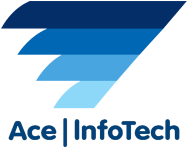
Why Your Digital Marketing Needs an Upgrade
If you're reading this, chances are your current strategy isn't delivering the results you hoped for, and you're seeking ways to improve. Now is the perfect time to research how to build an effective digital marketing strategy. With the new year just beginning, it's an ideal moment for a fresh start.
Unlike many articles that promote generic, one-size-fits-all approaches, this guide offers something different. Instead of a rigid plan, you'll find adaptable recommendations tailored to your unique needs and specific situations. Let's focus less on scrambling and more on strategic learning.
Define Clear Goals
Set measurable objectives to track success and growth
Many companies stumble at the first hurdle by failing to establish clear goals. Marketing experts emphasize creating tactical goals aligned with your broader business objectives. For example, if you plan to expand internationally in 2025, you should focus on growing your social media presence in target markets, building local brand awareness, generating qualified leads, and setting revenue targets.
Establishing annual goals creates accountability and drives team action. If international expansion is your primary 2025 goal, supporting objectives might include: collaborating with local marketing partners, creating country-specific social media pages, investing in local SEO, and developing regional brand awareness. Your main goal should follow the SMART framework (Specific, Measurable, Achievable, Relevant, Time-bound), while supporting goals can remain more flexible.
Leverage Digital Channels
Use social media, SEO, and email marketing to reach your audience
Digital marketing offers numerous ways to promote your business. While your specific goals will determine your channel mix, combining multiple approaches typically yields the best results. A comprehensive strategy often includes SEO, social media, email marketing, influencer partnerships, and digital advertising.
SEO (Search Engine Optimization) delivers long-term benefits when executed properly. It can significantly increase website traffic through organic search results. Consider consulting Digital Marketing Strategy Consultants for expert advice on website optimization, content quality, and natural user attraction.
While social media suits most businesses, platform selection should align with your target audience. The most effective platforms include LinkedIn, Facebook, Twitter, TikTok, YouTube, and Instagram.
Email marketing remains one of the most powerful tools for audience engagement. Regular email newsletters help maintain customer relationships.
Influencer marketing has grown significantly in recent years, with micro-influencers proving particularly effective for targeted audience engagement.
Personalize User Experience
Use data and AI to create targeted digital marketing campaigns
Today's consumers expect personalized messaging and services tailored to their interests. Data analytics and artificial intelligence enable deeper audience understanding, helping create more relevant and effective campaigns. Before implementing AI, clearly define how it will enhance your marketing performance.
Popular AI-powered strategies include:
- Customer segmentation: Group audiences by location, device, browsing behavior, purchase history, and demographics for targeted content
- Smart email marketing: Develop compelling email campaigns that resonate with recipients
- Social listening: Monitor brand mentions across digital platforms
- Predictive analytics: Anticipate customer behavior to create data-driven ads
Measure and Adapt
Continuously analyze results and adjust strategies for better performance
Regular evaluation ensures your strategy remains aligned with business evolution. Analyze key performance indicators to assess campaign effectiveness and identify improvement opportunities. Track metrics like engagement rates, click-through rates, follower growth, bounce rates, brand mentions, conversion rates, and website traffic. Tools like CRM software, social media dashboards, and Google Analytics provide valuable insights for optimization.
Get Expert Support
Work with an Interim CMO to refine and execute your strategy effectively
If you lack time or expertise to develop your marketing strategy, consider engaging an interim Chief Marketing Officer (CMO). These professionals collaborate with your team to create goal-aligned marketing plans. They take time to understand your business dynamics before developing strategies that capture opportunities and maintain competitiveness. Their leadership often inspires teams to develop more effective processes and strategies.
Final Thoughts
Now that you understand the essentials of building a comprehensive marketing strategy - are you ready to begin?
